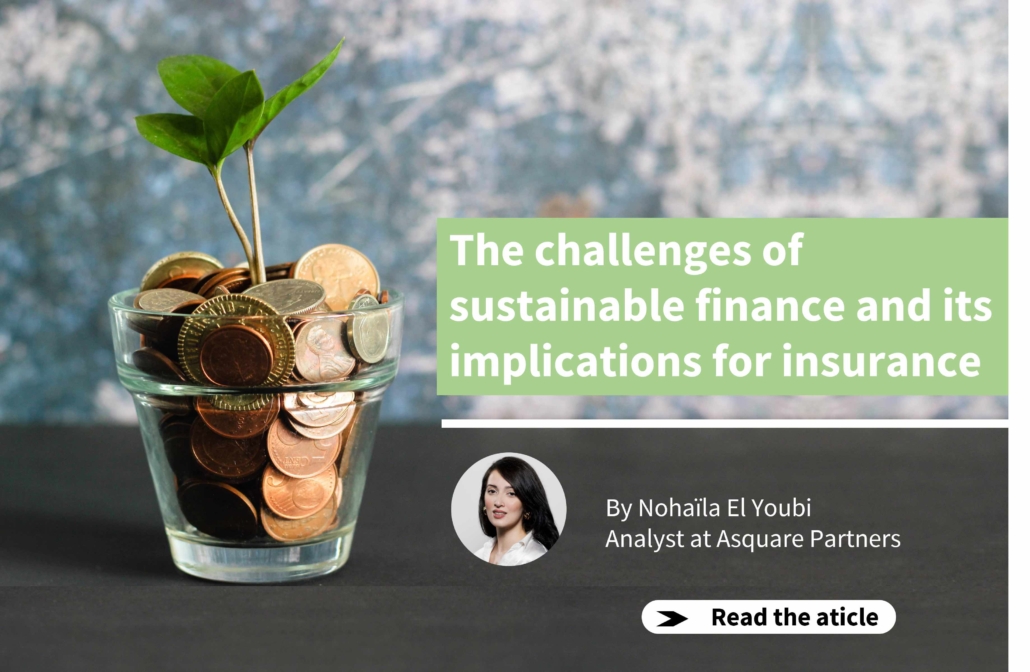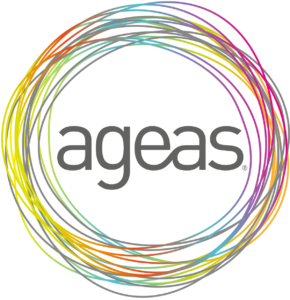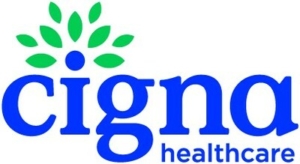
In a previous article, we highlighted the impacts of climate change in the insurance industry. In this context, the principles of sustainability are often mentioned, and sustainable finance becomes imperative.
In this new article, we will address the concept of sustainable finance, highlighting the developments in French and European regulations in the insurance industry, as well as its limitations. This investment approach aims to consider ESG criteria (Environmental, Social, and Governance) in their management and selection. While the concept of sustainable finance emerged in the 1960s, it was only in 2006 that a United Nations initiative led to the definition of the Principles for Responsible Investment (PRI) to provide it with a framework.
Quickly, labels were introduced to distinguish sustainable finance from traditional finance, encompassing responsible finance, green finance, and solidarity finance. In order to combine financial performance and sustainable development, labels were established in France and more broadly in Europe to qualify these investments based on financial criteria (profitability, stock price, growth prospects, etc.) but especially on extra-financial criteria that reflect the social, environmental, and societal implications of a company’s activities (ESG).
The Labels: Flagships of Sustainable Finance
In 2022, the European market has 9 labels for sustainable finance. In France, two labels created in 2015, certify socially responsible investment funds: the Socially Responsible Investing (SRI) label by the Ministry of Economy and Finance and the Greenfin Label by the Ministry of Environment, Energy, and the Sea. Since then, the SRI label has become the flagship of sustainable finance in France. It is based on four criteria related to the environment, social impact, governance, and respect for human rights.
According to Novethic, the sustainable transformation accelerator of the Caisse des Dépôts Group, since 2016, this label has been obtained by 1,354 funds representing €783 billion in assets as of the end of July 2023. For comparison, the Belgian label “Towards Sustainability,” known for being more restrictive, was awarded to 771 funds, with €539 billion in assets. The German FNG-Siegel label has been granted 291 times. The second French label, Greenfin, focusing only on ecological criteria, has been awarded only 120 times. In total, in Europe, 2,000 sustainable funds have been awarded for over €1.307 trillion in assets. The SRI label is thus the most awarded in Europe.
In France, it was mentioned that “a radical evolution was necessary ” based on a report from the General Inspectorate of Finance (Inspection Générale des Finances), commissioned by the Ministry of Economy for an evaluation of the label. In November 2023, the Ministry of Economy therefore published its new framework. This long-awaited reform prioritizes the fight against climate change. Companies using coal or unconventional hydrocarbon production representing more than 5% of their turnover are excluded. Companies launching exploration, exploitation, or refining projects for hydrocarbons are also excluded. In addition, funds applying for the SRI label must present a transition plan aligned with the Paris Agreement. A new decarbonization requirement for funds applying for the label will be gradually implemented. This reform will come into effect on March 1, 2024, and companies that have already obtained the label will benefit from a one-year transition period to adapt to the new requirements. New labelings are suspended until March 1, 2024.
Developments in the French Financial Market towards sustainability
The FIR, the Forum for Responsible Investment, a 1901 law association founded in 2001, conducted a study in 2023 on “The French and Responsible Finance.” According to this survey of 1,000 people conducted by IFOP, the opinion research institute, on behalf of FIR, the French show a notable adherence to responsible investment: 57% of respondents attach importance to environmental and social impacts in their investment decisions.
In the face of an increasingly favorable opinion towards a more sustainable economy and a need to invest more responsibly, a new index was created by Euronext in 2021: the CAC40 ESG. Based on the SRI Label, it includes the 40 companies with the best ESG practices. “The launch of the CAC40 ESG index is a significant step in accelerating the transition to a sustainable economy,” according to Stéphane Boujnah, CEO of Euronext. This index is based on an exclusion principle from the SRI label, which excludes activities deemed contrary to ESG criteria, such as activities based on coal, controversial weapons, and tobacco. It also integrates the basic principles outlined by the United Nations organizations on international labor standards, for example, or the fight against corruption.
Regulations impacting insurance
Multiple regulatory incentives and obligations compel economic actors, especially insurers, to align with sustainable finance. In consequence of COP21, French insurers signed the Financial Place of Paris Declaration in 2019, committing to contribute to the goals of the Paris Agreement.
In Europe, the Green Deal emerged in 2019 with the goal of carbon neutrality by 2050 and raising carbon emission reduction targets to 40% to 50%, or even 55%, by 2030. The European Union goes further and introduces the European taxonomy in 2020, designating a classification of economic activities with a positive impact on the environment. The European Commission tasked a group of experts, the Technical Expert Group (TEG), to set criteria for selecting activities, including climate change mitigation, pollution control, transition to a circular economy, etc.
Since 2018, the European NFRD (Non-Financial Reporting Directive), on non-financial reporting, requires 11,000 companies to publish a non-financial report, providing information on the impact of sustainability issues on their results, situation, and evolution, as well as the impact of their activities on the population and the environment. The NFRD allows monitoring and assessing the ESG performance of companies.
In 2024, the CSRD replaces the NFRD. This new directive expands the scope of NFRD but is also more demanding. The Corporate Sustainability Reporting Directive aims for harmonization of sustainability reporting by companies and the improvement of the availability and quality of published data. Companies will have to disclose information on risks, opportunities, and material impacts related to social, environmental, and governance issues, according to the double materiality principle. Double materiality considers the impact of ESG standards on company performance and their impact on the environment. The CSRD will gradually cover 50,000 companies. The various reports required by some regulations provide better transparency on the diverse actions taken by companies in terms of ESG.
In France, the Pacte law of 2019 (Action Plan for Business Growth and Transformation) requires companies to systematically reference SRI-labeled funds in life insurance units and retirement savings plans.
Since 2022, the Climate Law requires insurers to detail their approach to responsible investment (ESG) in a report. The measurement of the impact of investments on biodiversity will be mandatory starting this year. Article 29 of the Climate and Energy Law requires insurers to publish a dedicated report on information related to portfolio alignment with a trajectory compatible with the Paris Agreement.
The role of insurance and sustainable investment: Insurers, leading investors
According to the IFOP survey on responsible investment in 2023, six out of ten French people give importance to environmental impacts in their investment decisions. It is essential for French insurers to guide their savers toward responsible investments.
Aware of the sustainability challenges facing society and the economy, the France Assureurs federation conducted a study on insurance and sustainable finance based on a panel of 24 insurance groups representing 91% of the total assets of French insurance companies as of the end of 2022. According to this study, “Insurers are key players in the fight against climate change.”
Indeed, they are major funders of the economy and long-term investors. By the end of 2021, their investments in French companies amounted to €1,524 billion. They are also major contributors to financing the low-carbon economy, with €141 billion in green investments. They are gradually reducing their investments in the thermal coal sector. According to the report on insurance and sustainable finance by France Assureurs, as of the end of 2022, 7.8% of insurers’ assets correspond to green investments, representing a 17% increase compared to the end of 2021.
Insurers have organized themselves and launched initiatives to revive the economy, especially in response to the COVID-19 crisis. French insurers also joined the Observatory for Sustainable Finance in 2020, collaborating with other financial actors in the Paris financial market to demonstrate the transparent and progressive transformation of the sector towards sustainable finance. In 2020, together with Caisse des Dépôts, they launched the Durable France Recovery Plan to assist sectors particularly affected by the COVID-19 crisis. Insurers invested €2.5 billion in this program, based on a selection of extra-financial criteria. Later, in 2021, a mechanism was established to support the growth of companies committed to ecological transition through the “Obligations Relance” program.
After COP28, Crédit Agricole committed to no longer financing new fossil energy extraction projects and also pledged to reduce the CO2 emitted by projects funded by oil and gas by 75% by 2030. In its Climate & Biodiversity 2023 report, Axa published objectives to drive the decarbonization of some of its activities. Axa announced its intention to increase its insurance activity in the field of renewable energy, ecological transition, and develop sustainable solutions for auto claims by 2026. CNP Assurances exceeded 2 out of 3 objectives set by the group in 2015 for 2024. For example, CNP Assurances reduced the carbon footprint of its portfolio of corporate equity and infrastructure bonds by 48.36% between 2019 and 2022. Generali France aims to be the “champion” of sustainability. Between 2019 and the end of 2022, the carbon footprint of Generali France’s portfolio decreased by 48% (scope 1 and 2).
The limits of sustainable finance
Despite the reform of the SRI label being a step forward, some sustainable finance experts argue that “It won’t be enough to move the needle,” explains Olivia Blanchard, president of AFR (Actors of Responsible Finance). These new directions are not expected to have a significant impact on the stock of certified SRI funds, as Europe is not a highly exposed area to unconventional coal, gas, and oil. Reclaim Finance believes that “funds with the SRI label may continue to finance the worsening of the climate crisis.” According to the NGO, the failure to exclude companies that continue to develop projects conflicting with and incompatible with the French and international climate goals of the SRI label is a mistake and also its major flaw. New oil and gas fields, for example, cannot lead to the 2050 carbon neutrality scenario following the 1.5°C trajectory.
The positive best-in-class approach of the SRI label does not allow for proper scoring. In fact, an average score can still be obtained even if a poor score on one of the pillars is given. Another score can offset this. Therefore, eliminating values with the lowest ESG scores is insufficient. There is a need to use another scoring system that considers all pillars, highlighting all scores, whether positive or negative. Furthermore, the positive approach, which does not exclude any sector, allows companies to invest partly in polluting sectors.
On the other hand, numerous academic studies on the subject point out that the scores of ESG data providers scoring may differ for a same company or that there are flattering ESG scores based on announcements by companies rather than on the actual deployment of their transformation strategies.
The new European directive CSRD, replacing the NFRD, aims to harmonize the scoring system. Some mention greenwashing on these sustainable finance issues, which may, in reality, be mere window dressing.
According to a study conducted by Opinionway for the AMF, 34% of French people have a positive view of sustainable investments. Overall, savers under 35 are the most enthusiastic about responsible investments. However, this interest in sustainable finance is tempered by a skeptical opinion regarding fund managers’ commitments. 69% of respondents see it as a communication argument rather than a reality, and 58% believe that responsible investments are never entirely so. According to the ACPR on insurers’ advertising, “there is a risk of exposing clients to greenwashing practices, contrary to the obligation to provide clear, accurate, and non-misleading information.” A real question arises about the credibility of the sustainable finance offer. The various regulations and measures applied primarily concern reporting.
The concept of impact makes sense in this context. Sustainable finance is a step forward but cannot be an end in itself; the impact of companies on the economy and the climate remains to be seen. The quality of reports is essential, but a measurable impact of operations is necessary to observe the greening of the economy. The Ministry of Finance thus defines impact finance as an investment strategy aimed at accelerating the just and sustainable transformation of the real economy by providing evidence of its beneficial effects. According to the study by France Assureurs on insurance and sustainable finance key figures for 2022, €2 billion has been invested in an impact investment strategy by 13 insurance actors. As major players, insurers are pioneers in the impact finance market. The latest regulations favor it and push insurers to anticipate changes but also to measure their impact. Impact finance is then seen as the future of sustainable finance.
Many changes and developments are visible in finance, but so-called “sustainable” finance is still under construction. Faced with climate change, a quantifiable approach is necessary.
Thank you for your attention, and feel free to suggest other relevant topics for our upcoming articles.
Sources :
L’Argus de l’assurance, Investissement responsable : les assureurs, moteurs de la finance à impact
L’Argus de l’assurance, Assurance et développement durable : un chantier conséquent mais nécessaire
L’Argus de l’assurance, Fonds labellisés : un engouement européen pour l’investisssement responsable qui ne se dément pas
France Assureurs, Assurance et finance durable, chiffres clés 2021
France Assureurs, Assurance et finance durable, chiffres clés 2022
Novethic, Evaluation du marché européen des labels de finance verte et solidaire, septembre 2022
Vie-publique.fr, Taxonomie européenne : la classification des activités économiques vertes en six questions
AMF, Le reporting de durabilité CSRD : se préparer aux nouvelles obligations
AMF, Quelles stratégies d’investissement se cachent derrière l’ISR ?
AMF, Comprendre l’investissement socialement responsable (ISR)
Observatoire de la finance durable, Qu’est-ce que la finance durable ?
Les Echos, Opinion | Normes extra-financières : pour une double matérialité
Les Echos, CAC 40 ESG : le nouvel indice boursier qui rassemble 40 entreprises socialement responsables
Les Echos, Assurance-vie : nos contrats sont-ils vraiment plus responsables ?
Les Echos, Le challenge d’une assurance-vie responsable
Les Echos, La route encore longue de la finance durable
Les Echos, La Commission européenne dévoile son Pacte vert
Les Echos, La taxonomie, un dictionnaire européen pour définir les activités « vertes »
Les Echos, Les jeunes générations, moteur de l’investissement responsable en France
Les Echos, Les spécialistes de la finance durable critiquent les propositions de refonte du label ISR
IFOP, Les Français et la Finance Responsable – vague 5
IFOP, Les Français et la Finance Responsable – vague 6
Novethic, Plus de 2 000 fonds labellisés aux promesses confuses
Nations Unies, L’Accord de Paris
Franceinfo, Climat : après l’accord de la COP28, Crédit Agricole annonce la fin de ses financements pour les nouveaux projets d’extraction d’énergies fossiles
AXA, AXA annonce de nouveaux objectifs de décarbonation et publie son rapport Climat & Biodiversité 2023
CNP, Engagement pour le climat et la biodiversité
Generali, Rapport développement durable 2022












